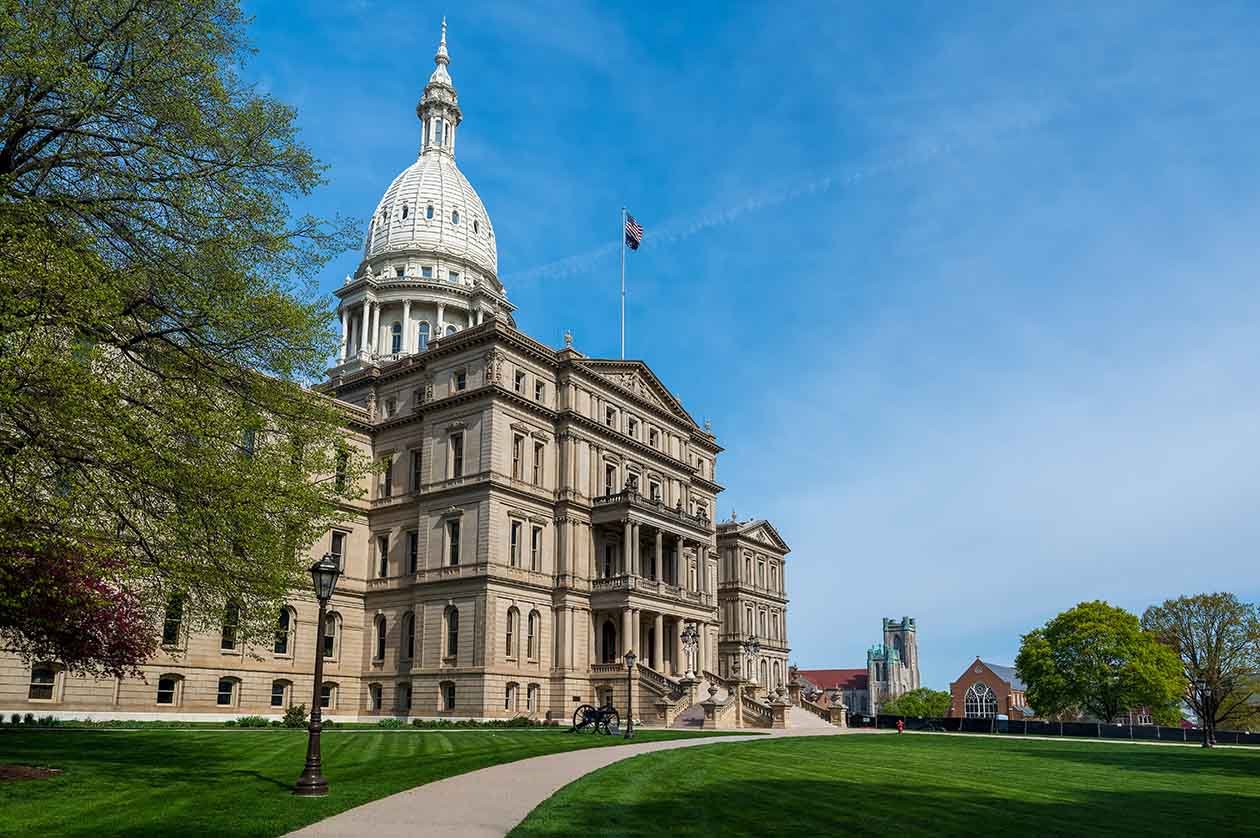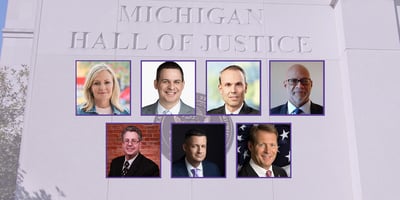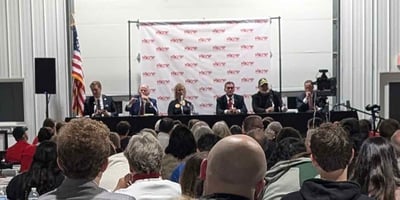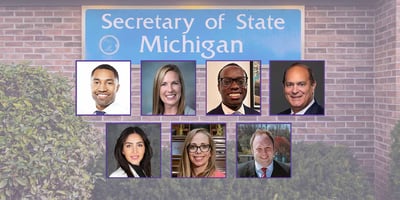Get to know the candidates to be the next Michigan Attorney General!
How Michigan Chooses Nominees for Statewide Offices
Learn how Michigan selects nominees for key statewide offices through party conventions, early endorsements, and how you can get involved in the process.

Michigan doesn’t hold public primaries for most statewide offices—including Secretary of State, Attorney General, Michigan Supreme Court, and state university boards. Instead, each political party selects its nominees at conventions, where credentialed delegates decide who appears on the November general election ballot.
While most voters are familiar with checking boxes on Election Day, few realize that many of Michigan’s most powerful offices are decided months earlier—inside party conventions rather than at the polls.
This article explains how the nomination process works, how early endorsements have shifted the political calendar, and how you can participate in shaping who makes it to the general election.
Early Endorsements in 2026
Both major parties plan early “endorsement conventions” in 2026 to give candidates a head start before their traditional late-summer nominating conventions:
- Republicans: March 28, 2026 – endorsement convention to select preferred candidates for Secretary of State, Attorney General, and other statewide offices. (Michigan Republicans decide to hold an early endorsement convention in 2026)
- Democrats: April 19, 2026 – endorsement convention in Detroit for the same offices. (Michigan Democrats plan April 19 endorsement convention)
Early endorsements allow parties to unify behind preferred contenders months before formal nominations are finalized. Endorsed candidates gain valuable time for fundraising and campaigning, but the official nominations still occur later through each party’s formal convention process under Michigan law (MCL 168.72).
What Actually Happens at Conventions
At the state conventions, delegates elected through the August primary gather to cast votes for statewide offices. The process is highly organized, with speeches, ballots, and spirited debate.
- Anyone may attend as a guest, but only credentialed delegates can vote.
- Delegates are elected in the August 4, 2026 primary, then selected by county conventions to attend the state convention.
- The winning candidates become the party’s official nominees and are certified for the November 3, 2026, general election ballot.
How We Got Here: Lessons from Recent Conventions
2018 – Democrats Go Early
In April 2018, Democrats gathered at Detroit’s Cobo Center for an early endorsement convention—their first in years. Delegates backed Dana Nessel for Attorney General and Jocelyn Benson for Secretary of State, hoping to give their candidates an early start on fundraising and organizing.
2018 – Republicans Stick with Tradition
Republicans held their traditional nominating convention that August in Lansing, where delegates chose Tom Leonard for Attorney General and Mary Treder Lang for Secretary of State. They didn’t adopt the early-endorsement approach until 2022.
2022–2023 – Internal Power Shifts
By 2022, conventions began to reflect national political influence. In April 2022, GOP delegates selected Matt DePerno and Kristina Karamo as their endorsed candidates for Attorney General and Secretary of State, both backed by Donald Trump.
These examples reveal that conventions—whether early endorsements or August nominations—are where party members, not the public, decide the slate that will appear on Michigan’s general election ballot.
How You Can Participate
Even though voters don’t directly choose these nominees, you can still influence the process:
- Run for precinct delegate on the August 4, 2026, primary ballot.
- Join a political party and attend local and county conventions.
- Support delegates or candidates who reflect your values.
Delegates chosen in August will later attend their parties’ official nominating conventions, where the final nominees for statewide offices are confirmed.
Why It Matters
Statewide offices shape how Michigan is governed—from overseeing elections to managing budgets, enforcing laws, and setting policy priorities. Understanding how nominees for these powerful roles are chosen helps reveal where influence sits within each political party—and how citizens can get involved well before Election Day.
Content Disclaimer: Our team researches information from official websites, news outlets, and other public resources to make it easier for Michigan residents to stay informed. We strive to provide accurate, balanced, and up-to-date information, but we may occasionally miss updates or changes. Michigan Women is a 501(c)(3) non-profit organization and does not support or oppose any political candidate or party. This content is intended solely for civic education and public awareness.
Sources
- Election Officials Manual: Chapter 15: Establishing Voting Precincts, Polling Places, and Early Voting Sites, July 2024
- Saginaw County Official August 6th, 2024 Democratic Delegate Candidate List
- Mich. GOP convention: Leonard, Treder Lang get nod
- Nessel, Miles fight for Dem ‘endorsement’ in AG race
- Dems rebuff UAW, pick Nessel for AG
- Michigan GOP sets early convention, declines vote by hand count
- Rules for Voting and Elections in the Michigan Democratic Party



